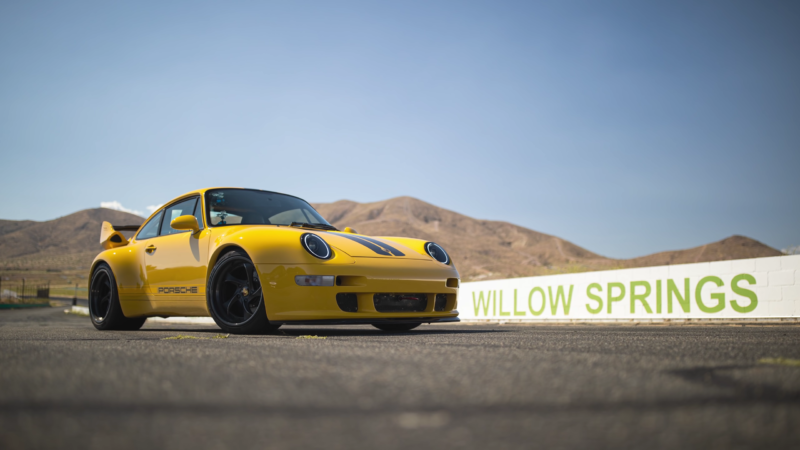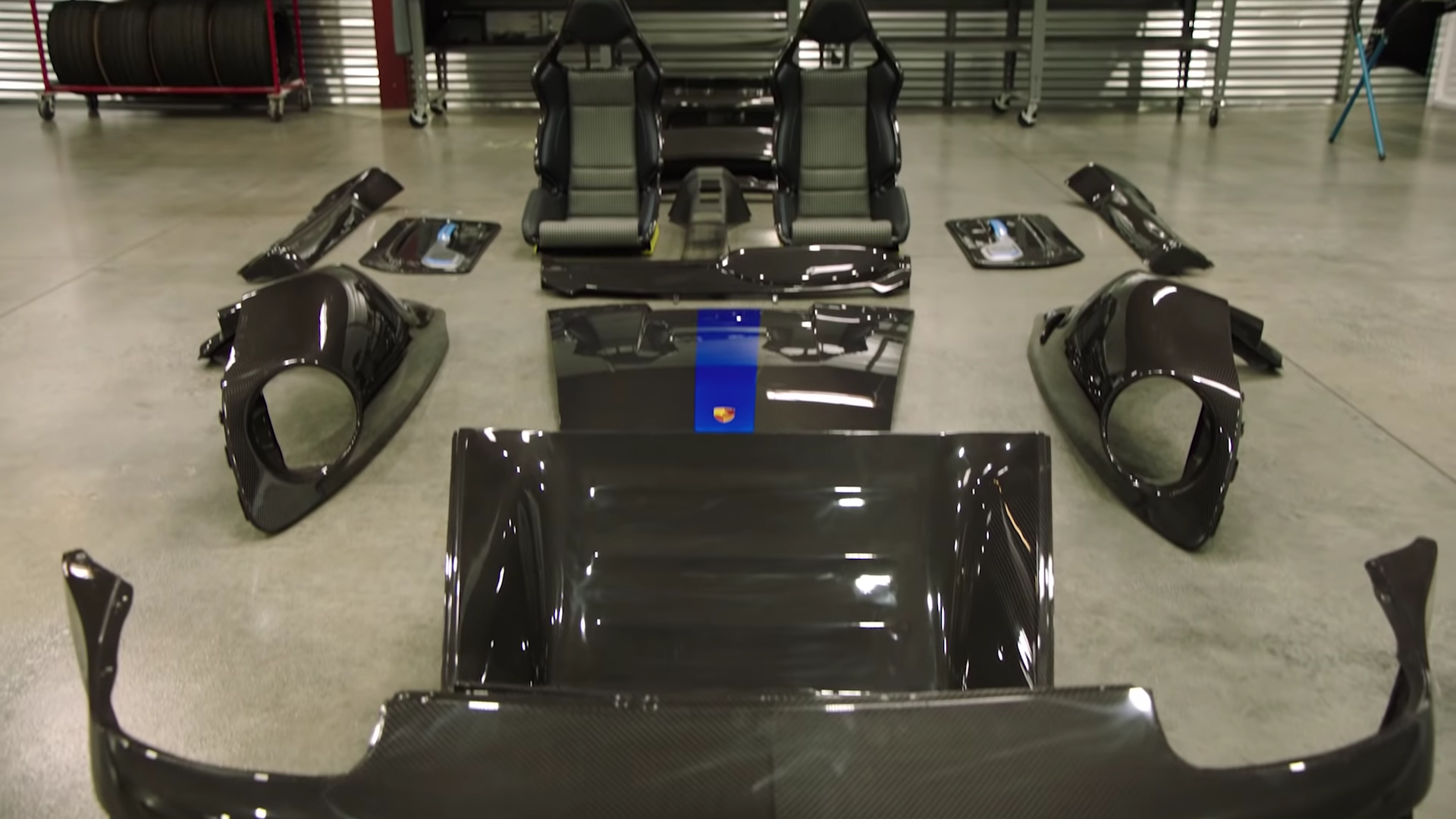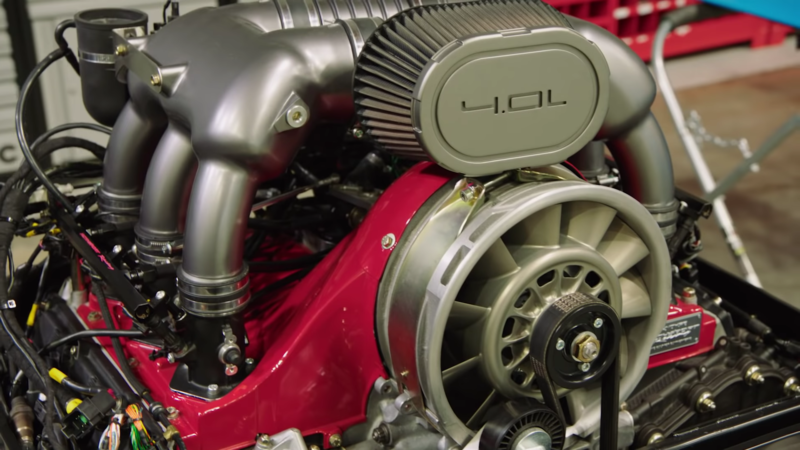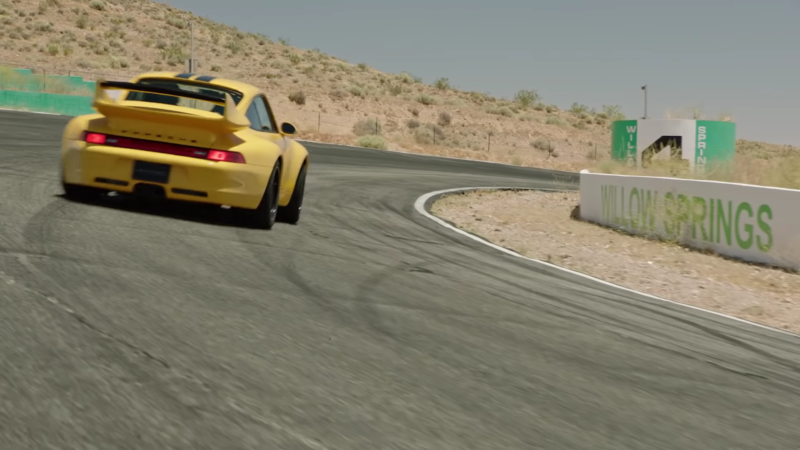
Gunther Werks’ Sting has the presence of an old racing car. It squeezes 295- and 325-section tires underneath its widened carbon haunches, as well as Fuchs-style wheels and massive Brembo CCM-R brakes. It looks nothing but business, and yet its adjustable suspension makes it a civilized thing to drive slowly. I may be a bit biased, but I think Sting might be the most compelling boutique 911 around nowadays.
Like any boutique Porsche, the focus on detail and craftsmanship is remarkable. In the case of Sting, the bodywork has an air of racing car about it that gets me all hot and bothered. They clothe the chassis—1995 is the only year they like—in a wonderful assortment of carbon pieces that drop the weight to Elise-levels. By cutting out the roof and rear quarter panels, replacing them with the woven grey stuff, and replacing the hinged panels with composite alternatives, they save six hundred pounds over stock. For reference, a base ’95 993 only weighs 3,020 pounds.

When on-track performance is vital, excess weight must be scrapped.
Therefore, the engine doesn’t have to work terribly hard to get this car up to a frightening pace. Since Willow Springs being the quickest track on the west coast, Randy Pobst’s complement to the howling four-liter must be seen as serious praise.

“We don’t hit a wall on the straightaway,” Pobst extols.
The motor is something to marvel. Built with individual throttle bodies, a high compression ratio, and lightweight internals, this motor makes 430 horsepower with that lovely top-end zing (8,100 revs!) that only certain atmospheric engines can make. It’s appetite for revs is facilitated by a G50 gearbox stuffed with whine-free Porsche gears, a cooler, and just about everything you’d want from a racing transmission, except the noise.

Pobst agitates the playful 993 mid-corner with a dose of throttle. Having 380 lb-ft available helps.
That willingness to slide at slower speeds is part of the charm of this old-world bruiser. Built to take an emotive, imperfect vehicle and retrofit it in a way that does not mask performance, but improves it—this is the aim behind Gunther Werks’ latest creation. In Speed Yellow, it might be the most visually striking 911 featured here in some time.
